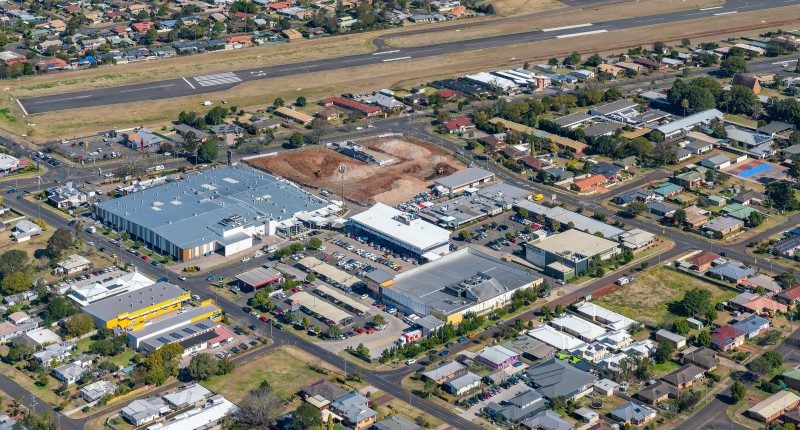- All the centres are anchored by at least a Coles or Woolworths - or both
- CBRE and JLL have been appointed as joint sales agents
- 61 neighbourhood centres were transacted across Australia in 2021
A formal sales and marketing campaign has begun for five neighbourhood shopping centres in a South East Queensland portfolio owned by CVS Lane and Consolidated Properties Group (CPG).
The centres, all anchored by at least a Coles or Woolworths supermarket, are located in Karalee, Palm beach, Wilsonton, Springwood and Keprra – all high growth areas across the state.
The portfolio will be offered either on an single asset basis, in-one-line or a combination. All the centres have seen an increase in valuation since acquisition thanks in part to substantial upgrade works. Each asset offers further development potential.
Tenants include daily needs, non-discretionary and essential services which has been delivering strong performances since the acquisition.
CBRE and JLL have been appointed as joint sales agents.
Lee Centra, CVS Lane Capital partners CEO, said their strategy had always been to hold these assets for the medium to long term as a method to deliver a strong and growing source of income for investors.
“With our original Trust approaching maturity and unprecedented high demand for this asset class, particularly in South-East Queensland, we have formed the view that there is now a good opportunity to test the market for a potential sale,” said Mr Centra.
“CVS Lane and CPG have received multiple unsolicited offers for the assets over the past 18 months, reflecting this unprecedented level of demand.
“The assets have gone from strength to strength in terms of their valuations and sales performances and proven very resilient in the face of major disruptions in recent years, such as the pandemic and severe weather events.”
Strategic acqusition
Consolidated Properties Group Chief Executive Don O’Rorke said their strategy included finding assets that offered strong refurbishment and development potential to hold for the long term.
“We have invested to that end accordingly,” said Mr O’Rorke.
“We’re proud of what we have achieved with each of these shopping centres in terms of improving their facilities and their retail offering and that shows in their performances.
“We have a strong pipeline of leasing enquiry which also speaks to the value of these assets.
“Our partnership with CVS Lane is always evolving and dynamic and we regularly look for new value-adding opportunities and we feel this is a good time take these assets to market.”
Jacob Swan of JLL expects interest to be high given the increased demand for neogbourhood retail assets.
“A strong shift towards defensive assets with low-income volatility is occurring given macro uncertainty,” he said.
“There remains significant equity capital available for low-risk retail assets – from a range of domestic and offshore institutional sources, such as pension funds and unlisted core funds.
“As a result, we’re seeing a tactical reallocation towards neighbourhood retail centre, underpinned by a strong daily needs offering, given the resilient performance through COVID-19 and the high-income returns offered relative to prime assets in other sectors.”
The listing comes as 61 neighbourhood centres were transacted nationally in 2021, to a record deal volume of $2.45 billion, 22% above the high in 2019. Interest is expected to be higher as investors seek assets that counteract the high inflationary environment.
Joe Tynan of CBRE said the fundamentals of Queensland-based retail assets have performed strongly due to the states high level of growth, caused by high interstate migration.
“The significant population shift has provided a strong tailwind for grocery retail and neighbourhood shopping centres in the past two years. In fact, retail turnover in supermarkets has grown by 16.8% in Queensland since the start of the pandemic, well above the national average of 12.4%.”
“Also, rising interest rates have historically not impacted on grocery sales volumes, compared with other spending, which makes Neighbourhood centres particularly resilient,” added fellow CBRE colleague Simon Rooney.
“Overall, our data suggests that nationally, neighbourhood centre capital values have risen at twice the rate of inflation over the past 20 years.








